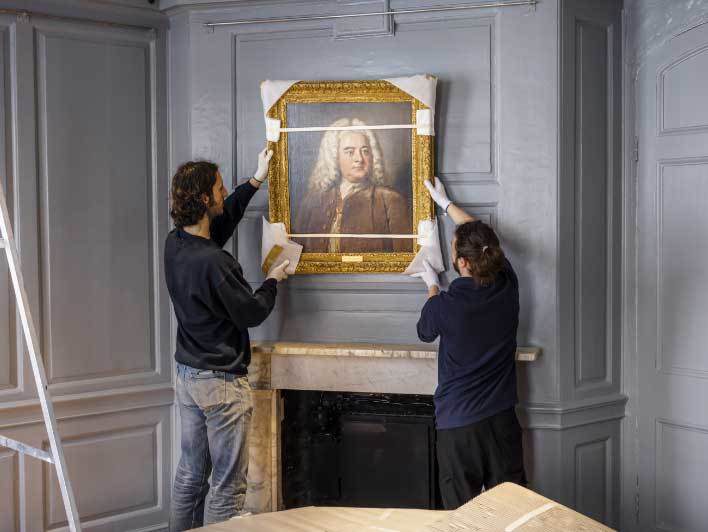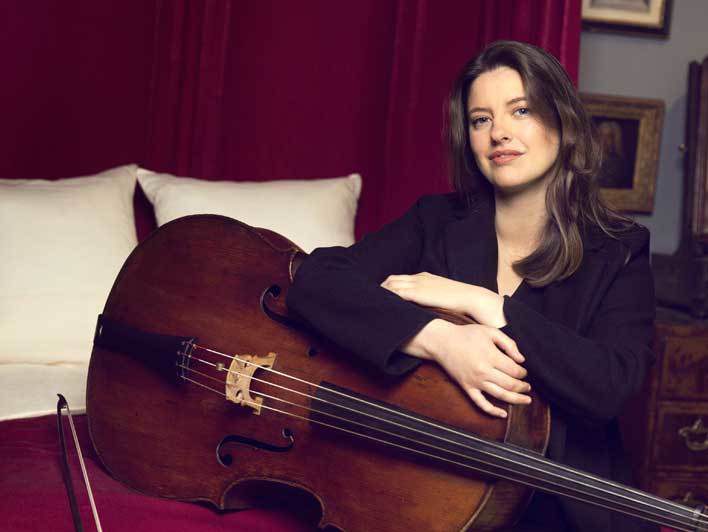SILLA (HWV 10)
Libretto: Giacomo Rossi
First performance: Unknown but possibly 2nd June 1713, Queen's Theatre or Burlington House, London
Synopsis

The action is set in Rome in the period 82-79 BC.
Act I
Silla enters Rome in triumph after his foreign conquests and victory over his enemy Mario. Military instruments play as he passes in procession through a triumphal arch. Metella and Lepido welcome him. As a reward for his victories he demands the submission of Rome to his absolute rule, confident in his future fame. Metella and Lepido are horrified by the threat to the freedom of the Roman Republic. Metella says she would die if Rome’s liberties were destroyed by her husband. Flavia, Lepido’s wife, tells her husband of fearful dreams in which she has seen Rome reduced to ashes. Lepido assures her that ill omens do not always bring ruin. Flavia and Celia see a thunderbolt shatter part of the triumphal arch, confirming Flavia’s fears. She begs Jupiter to grant a ray of hope. Claudio appears, holding a portrait which he is admiring. Celia assumes it is of a woman and snatches it from him. She is scornful when she finds it is a picture of the dead Mario, whom Claudio supported against Silla, since she is the daughter of one of Silla’s officers. Claudio says he loves her, but Celia cannot reveal her love for him because he is Silla’s enemy. Claudio promises to be faithful to her. Left alone, Celia admits she loves Claudio, but honour requires her silence.
In a garden Claudio confronts Silla, accusing him of suppressing Rome’s freedom. Celia intervenes, distracting Silla by asking him about her father. Silla gives her a letter from her father, which she reads. Claudio threatens to depose Silla, and Silla storms out with Celia following. Claudio resolves to oppose Silla’s arrogance.

Act II
Claudio meets Celia, distressed at having been the object of Silla’s lecherous advances. Claudio impetuously offers to be her protector, prompting her to confess that she loves him. Claudio is delighted. After he has gone, Silla returns and tries to lead Celia away, but Metella appears and warns him off. Metella praises Celia’s beauty.
Silla finds Flavia at home in the garden of Lepido’s palace. It has a statue of Silla in token of Lepido’s former support of him. Silla tries to persuade Flavia to marry him, but she remains implacable. As he tries to embrace her, the statue sinks into the ground and a cypress tree (symbol of death) rises in its place. Flavia interprets this as a warning, but Silla takes it to mean that he will find a place in the Elysian Fields. When Lepido intervenes, Silla accuses him of harbouring conspirators. He orders his soldiers to arrest Lepido and Flavia and put them in separate prisons. The couple part tenderly.
Claudio and Celia are still delighting in their love when Silla and his soldiers appear. Silla gives orders for the execution of Claudio and for Celia to be confined to her apartments. He tells Metella’s servant Scabro to arrange for Claudio to be fed to wild beasts, and for Lepido to be shot through with arrows. He rejoices in the thought of revenge. Metella learns of Silla’s orders from Scabro and resolves to countermand them.
Claudio is seen in the window of a tower overlooking the enclosure where the wild beasts are kept. He is about to be thrown to them and reflects on his fate. Scabro brings Silla a bloodstained garment, with the implication that it belongs to the executed Lepido. Silla is pleased and tells Scabro to show him Claudio being devoured by the beasts. Metella stops them, bringing news that the former followers of Mario are now rising against Silla. Silla decides to deal with the rebellion and leaves. Metella tells Scabro to release Lepido and Claudio, and to bring them to her. She implores the gods for help. Scabro returns with the two men and all leave quickly.

Act III
Lepido is safe in Metella’s apartments. He thanks her for saving him, and wants to kill Silla to restore Rome’s liberties. Metella says she cannot allow that: she must remain loyal to her husband. Scabro brings Metella a letter from Silla: it says that he is leaving Rome. Metella tells Sacbro to take Lepido to Flavia’s prison cell and, as soon as Silla has gone, to help him to free her. She regrets that Silla is leaving without saying farewell to her. Lepido looks forward to being reunited with Flavia.
Silla, alone, reflects on the burdens of ruling an empire. Just as he was hoping to enjoy the favours of Flavia and Celia, he has to go on a secret journey to Sicily. He decides to make one more attempt on Celia’s virtue, but she again rejects him. He leaves, callously telling her that Claudio is dead. Celia is distraught. As she continues to lament her loss, she hears her words being echoed in sympathy. In fact it is Claudio supplying the echoes. He comes out of hiding, and Celia, after first thinking he is a ghost, is overjoyed. Claudio assures her of his love.
In her prison Flavia resoultely awaits death. Silla appears with the bloodstained garment, warning her that she can expect to join Lepido in the underworld if she will not submit to him. When she remains defiant, he throws down the garment and leaves. Flavia returns to thoughts of death. Scabro brings in Lepido. He convinces Flavia he is not an apparition and the couple are happily reunited.
Silla has reached the shore near Rome, on a moonlit night, and is preparing to sail away. Metella joins him. He is distressed to leave her and begs forgiveness for his past behaviour. The couple hope that their love will be renewed. As Metella watches, Silla’s boat is wrecked by a sudden storm. Silla swims to a rock and Metella rows out in a small boat to rescue him. She brings him back to safety.
In the Capitol Lepido and Claudio lead the revolt against Silla’s tyranny. The god Mars appears in a cloud as Metella arrives with a repentant Silla. He asks pardon for his crimes, resigns his position and his honours, and declares he will live quietly with Metella. As his last act he gives Claudio permission to marry Celia. All praise those who put their trust in heaven.


